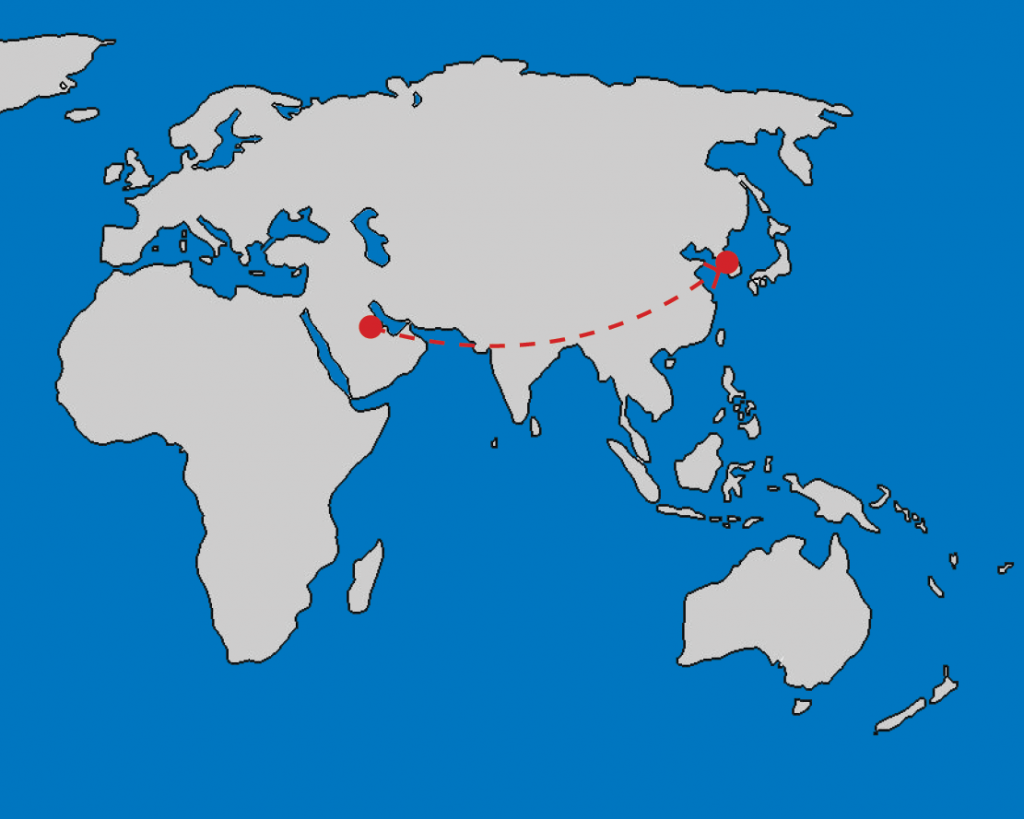On Sept. 6, an unnamed, 61-year-old South Korean man tested positive for Middle Eastern Respiratory Syndrome (MERS), reviving unpleasant memories of the outbreak in 2015 that killed 38 people. Returning from a three-week business trip to Kuwait, he had not been feeling well and decided to visit the Samsung Medical Center as soon as he landed. His alarming symptoms—an extreme fever, shortness of breath, pneumonia, among others—took the doctors by surprise, who immediately referred him to Seoul National University Hospital. According to the Korean Center for Disease Control and Prevention (KCDC), 14 people who came into contact with this individual, including some flight attendants, passengers, nurses, and immigration officials, have been placed under quarantine.
Constituting the first outbreak of MERS in South Korea in almost three years, this recent news has been a grim reminder of a severe outbreak that posed an ephemeral but grave threat to the nation. Yonhap News reports that more than 200 individuals were infected with MERS in 2015, and 38 of them died. In addition, almost 3,000 schools were closed as a result of the outbreak, and more than 125,000 tourists cancelled plans to visit South Korea, harming the domestic tourism industry.
“When the 2015 MERS outbreak occurred, I was a bit worried to leave my house,” said Leonard Lee (11), an SIS student living in Daechi. “Because I live and attend hagwon in Daechi, where the outbreak seems to have originated, my mom’s constant warnings and the news on social media kept me anxious at all times. In years past, the avian flu and swine flu outbreaks were just distant issues that did not affect me or anyone around me at all. However, the continuous waves of deaths in Daechi made me worried for my health and that of my family and friends.”
Although students attending SIS were not victims of this disease, the outbreak did indeed have a significant impact on some students. In June 2015, the SAT was cancelled at SIS, an official College Board test center. Given the worsening state of the MERS outbreak, the leadership team decided that gathering a considerable number of students into small areas was not an appropriate idea. Despite its well-intentioned motives, the school consequently faced an immense amount of criticism; high school students who had been preparing for months and were running out of opportunities to earn a satisfying SAT score were forced to wait several more weeks. As demonstrated in 2015, the reemergence of MERS would entail more consequences to SIS students than plain health-related effects.
“The critical question the leadership team asks in the face of national emergencies is as follows: what decision will produce the best worst-case scenario?” said Gray Macklin, high school Vice Principal. “SIS seldom closes; in the past 13 years, we have cancelled school only four times. However, each time, despite the potential disruption to school curricula, I feel we have reasonably and justifiably leaned toward the side of safety. Leadership is always like this; you are damned if you do something and damned if you do not. Still, when worst comes to worst, I find that not taking dangerous risks that could affect one’s well-being is important.”
To ensure that the 2015 crisis is not repeated, on Sept. 9, the South Korean government and relevant health-related institutions convened to formulate strategies for halting the spread of the disease, releasing a hotline number for citizens who might have been exposed to the virus to seek immediate medical assistance. As a result of such prudent steps, the disease was tackled with relative ease, for on Sept. 22, the KCDC announced that the outbreak had ended and lifted the quarantine. Nonetheless, federal agencies admit that they had simply been “lucky,” and the national quarantine guidelines should be revised. Learning from mistakes has been and will be a prime concern of the South Korean state for years to come.

